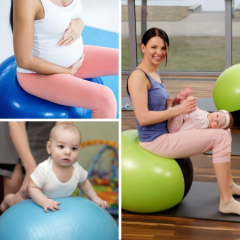Parenting Preparation & Skill Development Work / Play / Leisure Suitable for stages: Pregnancy, 0 - 3 Months, 3 - 6 Months
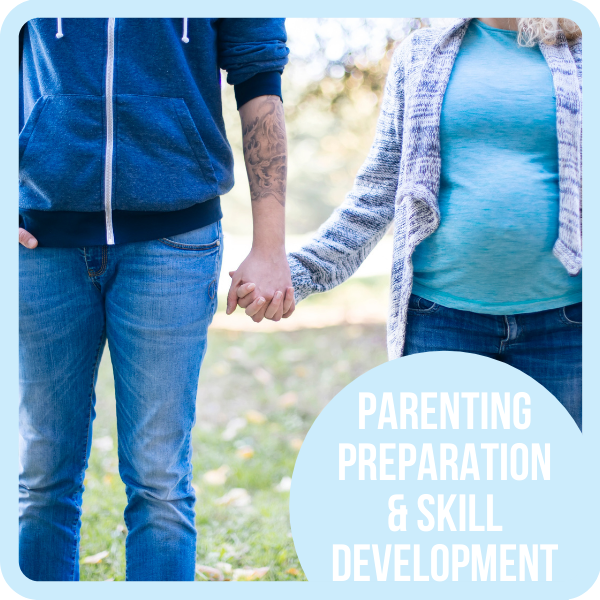

It's easy to get wrapped up in preparing for the birth when it is such a significant event, that sometimes the more long term situation of becoming a parent gets overlooked. The birth of your baby triggers a series of changes in your life. No preparation will match the experience, but it can help with expectations.
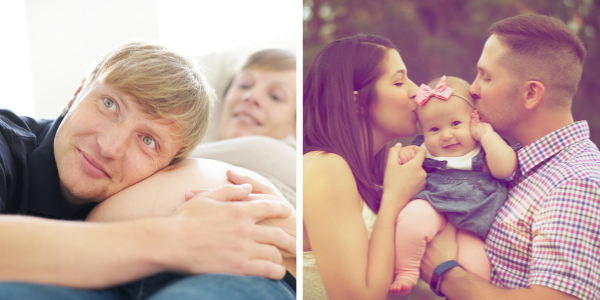
Your baby's birth is your birth as a parent, it is a shared experience (maybe with your partner as well) but each of you experiences it very differently. You become a new parent which means you are learning together, crafting a new identity of mother or father and adjusting to the demands of what you need to do.
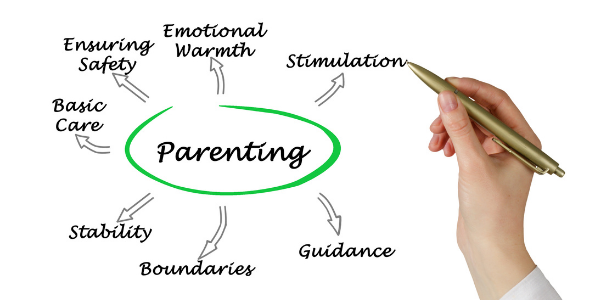
It may be useful to think of everyone as having basic needs (such as in Maslow's Hierarchy of Needs Theory) of which when met, can enable them to satisfy higher (growth) needs. As a parent, you are trying to meet the needs of your child and balance their needs with your own. If you have trouble meeting your own needs including physiological, safety, love/belonging and esteem, this makes it more difficult a job to be a carer.
To be able to meet your child's needs, you need to first know how to care for yourself. If this is something you have struggled with in your adult life, a huge personal effort and the act of self-love will be required to be able to first do for, role model and teach your children these skills.
Where you start on your parenting journey will be influenced by your past experiences as a child and relationships you have had with children throughout your life.
Your attachment style
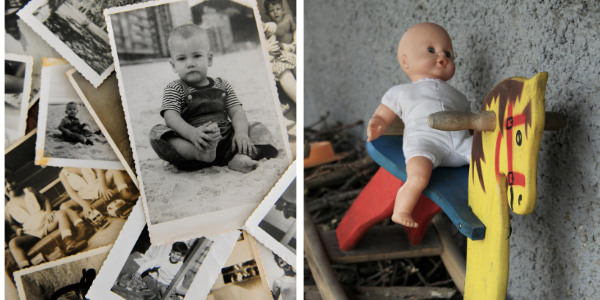
Your approach to parenting will be consciously and subconsciously influenced by your unique experiences as a child during your first relationships with adults (typically your mother and your father), siblings and subsequent relationships throughout your life. You hold your memories and experiences in your mind and body including the emotions, feelings, images, and bodily sensations. These can be wonderful memories or deeply traumatic memories. Moments you experience as a parent interacting with your child can be triggering for you emotionally. It is as if you are in a role-play of a childhood experience, only you are playing the parent and your child is you. In these situations, you can hear your parent's words coming out of your mouth almost automatically like you are reading from a script. These past experiences being brought into your awareness are a gift, giving you an opportunity to reflect, process, release, learn and grow. With awareness, we can make our own choices as a parent, breaking the generational cycles that do not serve our children's or our own greater good.
It is useful to understand attachment theory including what it means for secure attachment, and the various forms of insecure attachments which are common in both couple and parent-child relationships. Understanding your own attachment style requires you to reflect on your childhood and your relationships with your primary caregivers. This self-reflection then goes a long way to improving your awareness and understanding when you are being triggered and why you can react emotionally in parenting and relationship moments. There is no such thing as a perfect relationship, but we can have a strong, secure connection and attunement to the other person which is a foundation on which to heal the relationship when inevitable ruptures occur.
Your Sensory Profile
Parenting is a sensory overwhelming experience with babies and children needing lots of touch, breastfeeding, physical reassurance, loud outbursts and crying in the first months.
Later, children will engage in multi-sensory activities such as finger-painting, sandpit play, water play and swinging, sliding, and climbing. To help them with participating and learning, you may need to play with them.

Consider your own body’s ability to interpret and process sensory stimulus (everything we hear, taste, smell, touch, see, feel within us). Are you at either end of the sensory spectrum either very sensitive to the world around you (more so than others) or under-sensitive when compared with others?
Consider these things about yourself:
- Do certain clothes, certain sound/noise patterns or smells particularly bother or overwhelm you?
- Do others respond to things in their environment before you have even noticed?
- How do you cope with overwhelm?
- Do you retreat/avoid/distance or can you act out/become highly anxious/combative?
Being aware of your sensory profile can help you to recognise when things will and do trigger you and to work out some strategies to cope. For example, many women report being 'touched out' by the end of the day after caring for their babies and toddlers, especially if they are breastfeeding. Over time, with repeated exposure to touch, essentially exposure therapy, the body can get used to higher and higher levels of touch before feeling overwhelmed. This change is subtle but can be noticed with subsequent children.
Studies (here & here) have found a relationship between parenting styles, sensory responsiveness profiles of the parent, attachment styles and anxiety. Parenting styles included in Baumrind's parenting styles theory include:
- authoritative (warm, responsive with an appropriate level of control)
- authoritarian (disciplinarian with low levels of warmth & highly controlling)
- permissive (indulgent with high levels of warmth & low levels of control)
- neglectful (uninvolved with low levels of warmth & low levels of control)

Of all the parenting styles, for children in Western cultures, authoritative parenting has been promoted as being optimal for achieving developmental outcomes. Studies have found a relationship between sensitive with anxious/insecure attachment style to both the authoritarian (need to control your environment and personal boundaries with rules and routines and avoid physical contact) and permissive (avoiding uncomfortable sensations relating to enforcing strict rules and highly anxious behaviours) styles. They suggest that "if you didn’t develop strong sensory integration of the brain, this can either cause or be a result of insecure attachment which then leads to mood regulation difficulty such as anxiety".
One way to develop strategies and form your own parenting style to meet both your and your child's needs and a healthy relationship is to have an awareness of your level of sensory sensitivity, in addition to your attachment style. With this awareness, you can be intentional in your parenting, with high levels of respect, communication, and model assertiveness which can be healing for you and break any destructive intergenerational cycles.
Learning parenting occupations
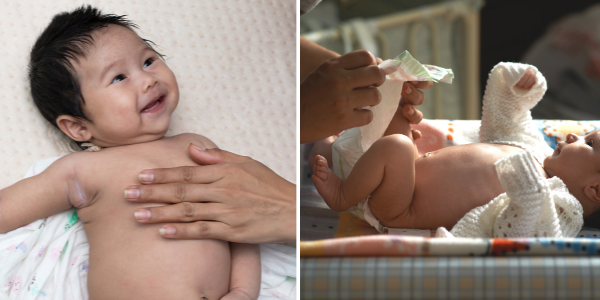
There are many aspects of newborn care and also postpartum care which are helpful to know about ahead of time to help with planning and preparation (keeping in mind not to get attached to your best-laid plans). If you haven't been around many babies or children in your life, you could benefit from learning some basics before you become a parent. Whilst most learning is done on the job, some level of preparation can help with your expectation and reduce the learning curve.
Resources such as parenting books on baby care and Newbaby 101, websites such as the Raising Children Network Australia, watching YouTube videos or taking a baby care class locally or online can help you learn the basics.
Additional Resources
Some resources to consider checking out include:
- Circle of Security International including the Raising a Secure Child: How Circle of Security Parenting Can Help You Nurture Your Child's Attachment, Emotional Resilience, and Freedom to Explore book
- The Whole Brain Child: 12 revolutionary strategies to Nurture Your Child's Developing Mind and other books by Daniel J. Siegel & Tina Payne Bryson
- Parenting resources on the Raising Children Network Australia
- Trauma Release Formula: The Revolutionary Step-By-Step Program for Eliminating Effects of Childhood Abuse, Trauma, Emotional Pain, and Crippling Inner Stress, to Living in Joy, Without Drugs or Therapy book by Anne Margolis
- Gidget Perinatal Support Centre Powered by Sonder is a 24/7 safety and wellbeing support service, linking expectant and new parents to a dedicated support centre via an app. All expectant and new parents who reside in NSW, as well as all Gidget Foundation Australia NSW clients, are offered access to Sonder. Check out their website for information about downloading the app and how to get started.
If you have found a great parenting resource, let us know. We will be updating this topic over time to improve the information and update the resources as needed.
Please note: Above all, any information on this website aims to provide general ideas for informational and educational purposes only. We encourage users to investigate several information sources, including, where necessary, independent individualised medical advice before making any decisions that could affect you or your child’s health or wellbeing.
* BabyPeg participates in various affiliate programs and may earn a commission for referring our users through the links provided. This is at no additional cost to our users. We take great care in choosing products and services which align with the mission of promoting better health and wellness for our BabyPeg community. Where possible, products are tried and tested by us. To continue to provide BabyPeg as a free service and reach as many parents as possible, we appreciate your support in using the link provided to purchase if you decide the product is right for you.






